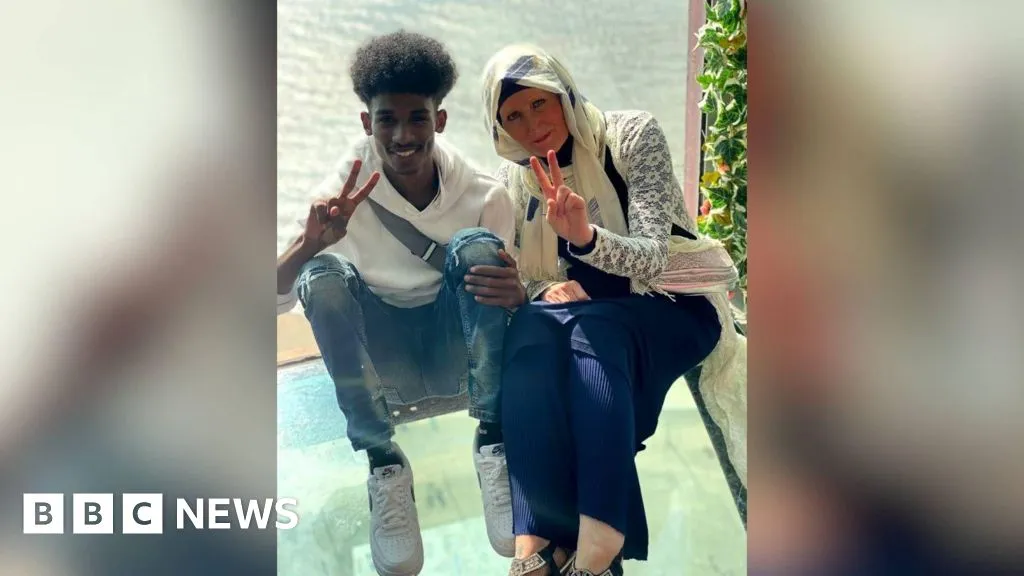A foster mum who converted to Islam is helping Muslim children in the care system to not lose sight of their religious and cultural heritage, offering them opportunity to be themselves as well as a place to live.
Andrea Hunt has been fostering for 27 years and in that time, nearly half of the 106 children to pass through her door were Muslim, with many arriving in the UK to seek asylum after fleeing war or persecution.
Ms Hunt, who lives in Leamington Spa, became a follower of Islam 13 years ago after learning about the faith through one of the children placed with her. She now seeks to offer Muslim children experiences linked to their various backgrounds.
According to one think tank, many Muslim-heritage children in need of care are being placed in homes that lack understanding of their faith and culture, posing a risk to their sense of identity.
Ms Hunt said since coming to the faith it had been easier for her to connect with Muslim children in her care.
Despite not living in a Muslim community, she said she was determined to give the children "enriching cultural experiences".
She said: "I take them to Coventry or Birmingham for food, clothing and eating out."
Meet-ups with fellow foster children who are Muslim are organised, and connections are also made with the young people who once passed through Ms Hunt's doors.
Recalling a withdrawn teenage boy from Afghanistan who arrived after a gruelling journey, she said: "The next day he was cooking Afghan food [and] by the time he left, the social workers couldn't believe he was the same child they'd dropped off."
Another young man, 18-year-old Mohammed Adil Al-Adil, has since left Ms Hunt's care but still lives nearby; having arrived in the UK from Sudan.
He said: "It makes me really happy to see her. I always feel welcome."
This positive feedback, however, covers just one household. What of the wider care system?
In the West Midlands, where more than 16 percent of children in care come from Muslim backgrounds, there is growing concern the system falls short in meeting their needs.
A new report by Think Tank Equi, led by former Barnardo's CEO Professor Javed Khan OBE, found that many Muslim-heritage children were being placed in homes that did not have an understanding of that heritage.
Without that connection, says report author Sofiya Shah, children risk losing not just their families, but their identity.
"Faith-matched carers help children feel safe. It supports their identity and routine," she explained.
According to the Equi report, 66 percent of British Muslims believe caring for vulnerable children is a religious duty, and are 63 percent more likely to consider fostering or adoption than the wider public. Yet fear of cultural bias, lack of support, and poor matching remain common barriers, the report states.
Mohammed Bashir, a registered social care manager from Walsall and co-founder of Active Care Solutions, a faith-based fostering agency, said cultural disconnection could affect a child's sense of security.
"One boy placed with a Muslim carer said 'you remind me of my dad' - that changed everything," he explained.
Both Mr Bashir and Ms Hunt contributed to the Equi report, which calls on local authorities to embed faith and cultural understanding into standard care protocols - not as an exception, but as best practice.
Michelle O'Farrell-Baines from Sandwell Children's Trust is quoted in the report and says the service there is already taking steps along those lines. "We try to match people by background and religion. We even celebrate Eid together," she said.
Report author Sofiya Shah puts it this way: "These children aren't just looking for shelter. They're looking for belonging."
